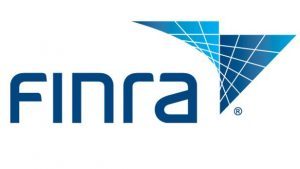 FINRA Spells Out Extraordinary Cooperation. FINRA, the Financial Industry Regulatory Authority, would like its member firms to know there’s extra credit possible for cooperating in investigations.
FINRA Spells Out Extraordinary Cooperation. FINRA, the Financial Industry Regulatory Authority, would like its member firms to know there’s extra credit possible for cooperating in investigations.
Susan Schroeder, the executive vice president and head of FINRA Enforcement, was the latest guest on FINRA’s podcast, FINRA Unscripted.
FINRA recently updated its guidance on extraordinary cooperation with FINRA in their investigations.
Schroeder came on the podcast to talk more about this.
“Responding to our requests for information is required. Fixing a problem is required.” Schroeder said on the podcast, “if a member firm identifies for example that a supervisory system is not reasonably designed, they need to fix it, and if they identify that customers have been harmed as a result of violative activity, we would expect the customers to be made whole.
“Extraordinary cooperation, the steps beyond that, are typically steps that help us get to those results in a way that saves FINRA time and resources and really get the problem fixed and the customers be made whole as promptly as possible.”
In a regulatory notice filed on July 11, 2019, FINRA gave several examples of previous extraordinary cooperation including this example.
“In September 2017, FINRA ordered a respondent firm to pay approximately $9.8 million in restitution to customers who were affected by the firm’s failure to establish and maintain a supervisory system reasonably designed to detect and prevent unsuitable short-term trading of unit investment trusts. While FINRA fined the firm $3.25 million, this reflected substantial credit for the firm’s extraordinary cooperation and remediation to customers.” FINRA stated. “The firm initiated, prior to intervention by a regulator, a firm-wide investigation to identify the scope of potentially unsuitable trades, which included the interview of a substantial number of firm personnel and the retention of an outside consultant to conduct a statistical analysis; identified harmed customers and established a plan to provide remediation; and provided substantial assistance to FINRA in its investigation.”
FINRA listed several examples of the sort of behavior which would be considered extraordinary cooperation including the following three.
- Engaging or conducting an independent audit or investigation that is thorough and far-reaching in scope beyond the immediate issue, with an eye toward identifying and remediating all related misconduct that may have occurred.
- Hiring independent consultants to ensure the adoption and implementation of improved supervisory systems, procedures and controls.
- Where the root cause of a violation relates to organizational weaknesses such as where a firm dedicated inadequate staff to the supervision of a particular business line, making organizational changes by, for example, creating new supervisory positions, adjusting reporting lines or, if necessary, removing or disciplining responsible individuals, including those in supervisory roles (although personnel changes are not necessarily required to achieve extraordinary cooperation)
FINRA first issued guidance for extraordinary cooperation in 2008.
That initial guidance stated in part.
“FINRA is issuing this guidance to apprise firms of the circumstances in which extraordinary cooperation by a firm or individual may directly influence the outcome of an investigation. The types of extraordinary cooperation by a fir m or individual that could result in cred it can be categorized as follows: (1) self -reporting before regulators are aware of the issue ; (2 ) extraordinary steps to correct deficient systems ; (3) extraordinary remediation to customers; and (4) providing substantial assistance to FINRA’s investigation. These step s alone or taken together can be viewed in a particular case as extra ordinary cooperation and, depending on the facts and circumstances, can have an impact on FINRA ’s enforcement decisions.”
FINRA is a self-regulatory organization which formed when the regulatory arms of NYSE and NASD merged in 2007.









